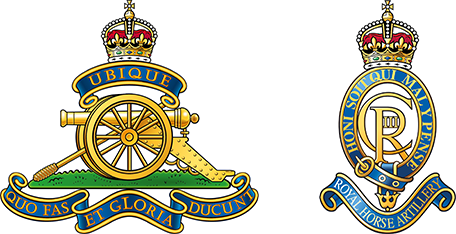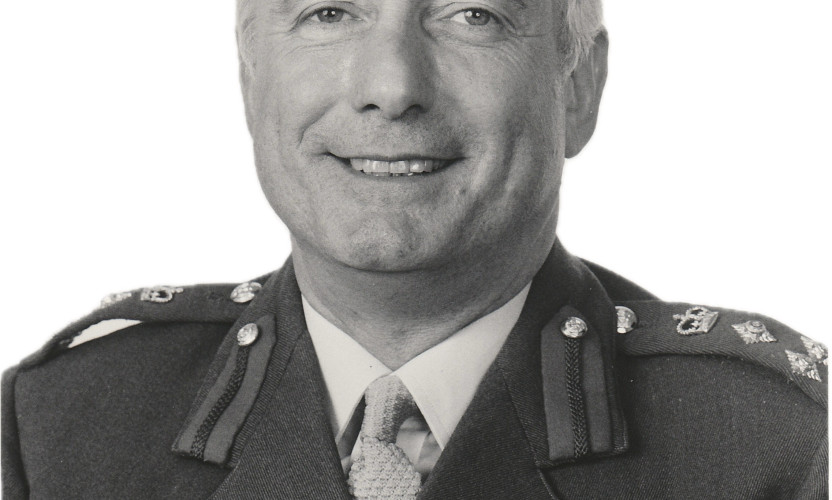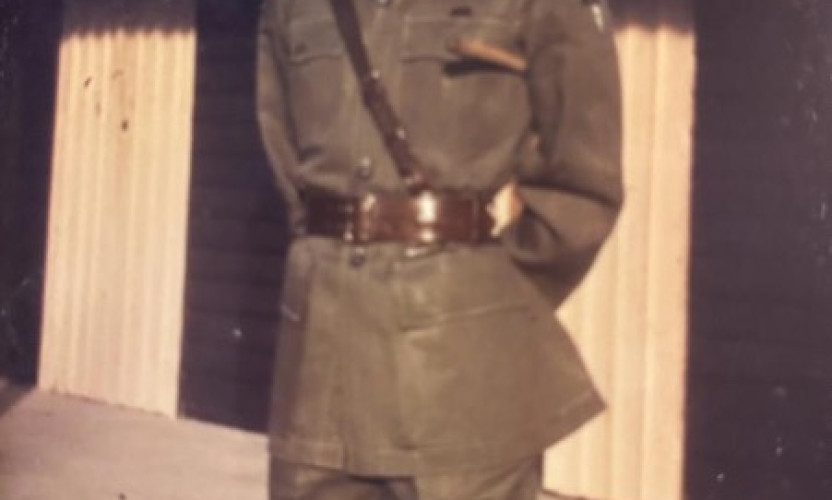
Colonel (Retd) Robert Anthony (Tony) Spackman
25/11/25
Tony Spackman died peacefully on the 16th October 2025.
Tony Spackman left Bromsgrove School in July 1949, where he had served as Head Boy. Although he obtained a place to read medicine at Gonville and Caius College, Cambridge, he deferred his entry until after his National Service. He was called up in November 1949 for basic training at Oswestry.
Upon completing training on 25-pounders, he attended Mons Officer Cadet School in Aldershot and was selected for the 4th Royal Horse Artillery (RHA), stationed nearby. He joined F (Sphinx) Battery, 4th RHA. After months guarding nuclear weapons arriving from the USA at Greenham Common, the Regiment moved to the British Army of the Rhine (BAOR) at Hohne in early 1952. He subsequently gained a Regular commission, relinquishing his place at Cambridge. He became a key figure in military sports, selected for the BAOR Hockey team, the Army team, and the Staffordshire County XI.
Remaining with F Battery for eight years, he was promoted to Captain and sent to the Royal School of Artillery at Larkhill. He was immediately deployed to Manorbier, Pembrokeshire, for the first Long Gunnery Staff Course on Guided Weapons. This role involved live firings at the Outer Hebrides Missile Range and at a US Army barracks in Germany. He was also part of a team sent to BAOR to train regiments receiving the “Honest John” missile. After passing the Staff College entry exam, he attended the Camberley Staff Course. Following this, he joined the 2nd Field Regiment, spending time in Libya supporting the 2nd Greenjackets Battle Group.
His career continued with two years as a Major on staff in Singapore, followed by two years as a Battery Commander in the Junior Leaders Regiment at Bramcote. He was then posted to the United States to attend the Joint Services Staff College in Norfolk, Virginia.
Returning to Europe, he commanded a Battery in the 32 Heavy Regiment, RA, in Hildesheim, equipped with nuclear-capable ammunition. Upon promotion to Lt. Colonel, he returned to the USA as a British Liaison Officer at Fort Sill, Oklahoma, interacting with US troops bound for Vietnam who were keen to learn from British experiences in Malaya.
He later commanded the 49 Field Regiment RA in Hohne, BAOR, which included two four-month tours in Belfast. This was followed by five years at the MOD in Operations and the Quarter-Master General Department.
As a temporary Brigadier, he served as Commandant of the RA Range in Benbecula, Outer Hebrides. His final posting was as Commandant (Colonel) of the Proof and Experimental Establishment at Shoeburyness.
After leaving the army, he moved to West Sussex and became General Manager for the Fire Services National Benevolent Fund (now the Firefighters Fund), a position he held for nine years. He expanded the charity significantly, establishing two fitness centers and 40 cottages/flats for members. In retirement he was active in village administration, the Conservative party, and game shooting and fishing.



